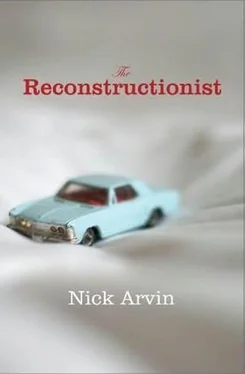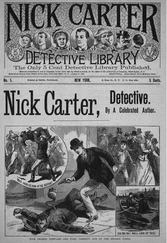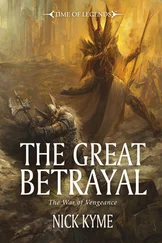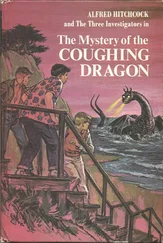‘Heather -’
‘I thought about buying an RV like the one my dad had and going out to look for you. The same kind of RV so you would know it was me. But I guessed you would come back.’ She spoke to the ceiling, turning to him only with glances, as if shy. ‘Because you had said you would, and you’re the kind of person who does what he says he will do. Even if you did say you would come back soon .’
‘As soon as I could -’
‘If I had a nickel for every excuse.’
‘The road to hell is paved with nickels.’
She smiled a little. ‘Yes.’
It seemed as if he could hear the faint, entropic noise of everything around him slowly corroding, oxidising, of the room’s thin light minutely eating into the surfaces it touched.
Heather’s features suddenly strained, and she rolled away. ‘It’s OK,’ she said without looking at him. ‘It’s OK.’
He moved into bed with her. He nestled against her. He tried not to suggest to himself the question of how many times Boggs had lain in this bed.
After Boggs’s death, after the police had released him, he had begun driving without any sense of intention. He seemed able to see and to recall everything, and this was terrible, and he wished for a catatonic state, a slipping under the waters of consciousness. Only the shaking in him had stopped, and now he found he missed it. Otherwise he wanted nothing of the world, but even as it feigned indifference the lurid world impinged on him constantly. He ate, he drank, he slept, he went to the bathroom in gas stations and rest stops and Taco Bells. His feelings were small, constant and physical in their shifting, like a leaf fluttering in his lung. He had loved Boggs, but he loved Heather more passionately, and recalling this pairing of facts stirred certain notions to life, and at times he screamed, beat on the steering wheel. But these efforts made no difference to anything, and when he stopped it seemed to be because he had simply decided to stop.
One afternoon, as he drove a lonesome stretch of two-lane between fields where cotton tufted white like a scatter of snow on low brown plants, the minivan’s temperature gauge began to climb. Soon the radiator spit steam, and he had to be towed from the roadside. While a mechanic worked to swap the water pump, Ellis asked what day it was. Two weeks had dissolved since Boggs’s death. He went to a phone on a post near the road and, after several minutes of doubt, called the hospital.
‘He’s come out of it,’ Mrs Dell exclaimed. ‘He’s really better. I’ve told him about you, about how you called, about your concern. He wants to meet you.’
This – he saw now – was obviously an untruth. But when she said it, he believed her and glimpsed something past his personal oblivion. He drove the minivan for a day and a half without rest to reach the hospital.
But now the jolt of purpose had faded. He moved in a strange world, filled with dark strangeness, and it was strange to be expected – by the implication of the progress of time, if nothing else – to continue with life and find ways to act. For three days he did not leave Heather’s house. He wished he had come here sooner. He felt impossibly indebted. Here, for now, nothing needed to be explained.
Boggs had been cremated, Heather said, the ashes sent to his surviving aunt. She had arranged to have his convertible donated to a charity rather than shipping it back here, but the things piled over the living-room floor were Boggs’s things, or things that she thought of as his, which she could not bring herself to use or to trash. She asked Ellis if he would do something with them.
So he had a task. When she went to school to teach, he ranged the house, gathering: all the items in the living room, then the shoes and shirts and slacks in the bedroom closet – clothing that he had seen Boggs wear many times – and a pair of sunglasses on the dresser, toothbrushes in a drawer under the bathroom sink, a collection of pocketknives in the chest of drawers in the hallway, an assortment of baseball caps on the refrigerator, all into plastic garbage bags that he assembled in ranks on the back patio. The files of records and financial documents that Boggs had assembled were still stacked on the dining table. Ellis put them into a cabinet in the spare bedroom.
He told her what had happened, as best he could, the facts of the event, likely not much different from what the police had told her. The official report, Heather said, had labelled it a suicide. ‘No,’ Ellis said. ‘What do you call it when a person loses at Russian roulette? He didn’t look at the car that hit him. He didn’t look to see if there was a car. I don’t think he was aware of the car, except as a possibility. He knew there was traffic, which might or might not be able to stop for him. He’d done exactly the same thing a little while earlier, and got away with it. He took a chance. What do you call a person who does that?’ He waited for Heather to say something, but she didn’t. He said, ‘I think there was a distinction in his mind.’
He told her that when he reached Boggs and found him dead, he had somehow bloodied his own face on the ground, so that the police believed for some time that he had also been involved in the collision. And that his own actions had even at the time felt light and insultingly comic.
He laboured to raise words. ‘What’s strange is that I have to work very hard to remember the collision,’ he told her. ‘James Dell still flips up onto the hood in front of me. But it’s as if Boggs had stepped into a fog. I can remember details, but I have to concentrate, and even then the sequence doesn’t flow, there are only some disconnected pieces, as if I had been told about it, no sense of having been there, and it seems I can’t even feel guilty correctly.’ As he spoke a prickling sensation of hot sand filled him grain by grain until he was choking and could say no more.
Over the days he grew aware – in a partial way – that Heather’s constraint and quiet were a little strange, but he had his own impulse to silence, and he told himself that the silence between them was not uncomfortable, because of Boggs and everything now thick with Boggs’s presence, because they both knew that in death John Boggs had spread himself everywhere. The idea that Boggs was simply gone was impossible to sustain. Unlike the dead man at the lake, who in his anonymity became a curiosity. Unlike Christopher, who Ellis had known well but had not understood, so that in death he became an object of the past.
And although they hardly spoke in the course of the evening, they still clung together in the night, they still made love, and he felt as if here they had come to a place of such unbounded emotion that there was nothing left to say.
In boxes in the closets he discovered hats and gloves and scarves, rubbers for Boggs’s size twelve shoes, and a sunshade for his convertible’s windshield. In the corners of the garage he discovered a dusty, half-empty pack of cigarettes, an extra set of tyres for the convertible, a few old T-shirts. He sifted and contemplated Boggs’s collection of tools – wrenches, screwdrivers, hand drill, sander, pipe cutter, hammers, pliers, table saw, mitre saw – and then began putting them into boxes. From the basement he brought up cans of tennis balls, aluminum-frame tennis rackets, cross-country skis, a selection of paperback thrillers, AC/DC and Led Zeppelin cassette tapes, a box of model-railroad equipment. Most surprising, perhaps, was how little it all amounted to. A few bags. Boggs kept a messy desk at the office, but he didn’t have much clutter at home. Soon Ellis was searching through closets for the fourth or fifth time, sorting item by item through drawers and wondering whether Heather would consider a ballpoint from a Hyatt or a stray brown coat button to have been Boggs’s. He peered under the bed and sofa, into the crannies of the furnace room, along the rafters of the garage. In a bin of unused flowerpots he found a hidden box of Boggs’s keepsakes – tapes of a high school rock band, photos of a girl perhaps eighteen years old, strings of beads and shells, medals from youth golf tournaments, high school and college diplomas, and stacks of report cards. Ellis began to sort through the stuff, but then stopped and upended it into a garbage bag.
Читать дальше












